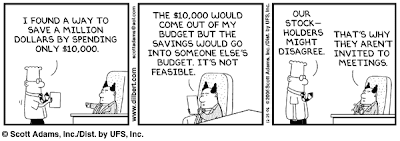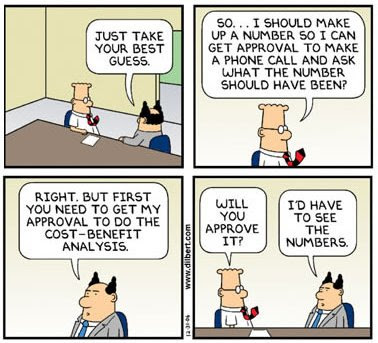
Usually, a communicator’s purpose is to develop and send a message that alters the attitudes, decisions, or behaviors of recipients. The critical question, of course, is how best to arrange it. Although social psychologists have provided many important insights into this matter, one of the most valuable is offered by Anthony Greenwald in his “cognitive response model,” which represents a subtle but critical shift in thinking about persuasion. According to this model, the best indication of how much change a communication will produce lies not in what it says but, rather, in what the recipient says to him-or herself as a result of receiving the message.
Earlier approaches to producing change emphasized the importance of the message itself—its clarity, structure, logic and so on—because it was thought that the recipient’s comprehension and learning of the message content were critical to persuasion. Although this is certainly true, the cognitive response model added an important insight by suggesting that the message is not directly responsible for change. Instead, the direct cause is the self-talk—the internal cognitive responses—people engage in after being exposed to the message. A good deal of research supports the model. For instance, in one of Anthony Greenwald’s persuasion experiments, audience members’ attitude change on a topic wasn’t related so much to what they recalled about the elements of the persuasive appeal as what they recalled about the comments they’d made to themselves when experiencing those elements.
Encouraging Positive Self-talk. What are the implications of this view for the way you should fashion a persuasive attempt? Let’s suppose you want to write letter to citizens of your town supporting lower highway speed limits. The most general implication is that you would be foolish to structure the attempt without simultaneously thinking about what your audience members would say to themselves in response to the letter.
First, you want to find ways to stimulate positive self-talk to your letter. This means that besides considering features of your intended message (for example, the strength and logic of the arguments), you should take into account an entirely different set of factors that are likely to spur approving responses to the message. For instance, you may want to delay the mailing of your letter until your local newspaper reports a rash of highway speeding deaths; that way, when your letter arrives, its message will gain validity in the minds of the recipients because of its good fit with other information. Or you might want to increase the favorability of cognitive responses to your letter by printing it professionally on high quality paper because people make the assumption that the more care and expense a communicator has put into a persuasion campaign, the more the communicator believes in its validity.
Inhibiting Counterarguments. But, even more importantly than trying to ensure that your message creates positive self-talk, you should also think about how to avoid negative self-talk—especially in the form of internal counterarguments against it.
Persuasion researchers have routinely shown that the counterarguments audience members construct in response to a message can devastate its effectiveness. Thus, you might want to include in your letter a quote from an acknowledged traffic safety expert asserting that higher speed limits greatly increase automobile fatalities.
A recent brain-imaging study (Engelman, Capra, Noussair, & Berns, 2009) tells us why such a step would work. Participants in the study were asked to make a series of unfamiliar financial choices some of which were accompanied by advice from an expert source (a prominent economist). When the economist’s guidance was available, choices were powerfully affected by this expert’s advice. The reason was revealed in the brain activation patterns of the participants. In the presence of expert advice, the areas of the participants’ brains linked to critical thinking and counterarguing flat-lined.
These findings help explain why expert communicators are so effective. It’s not that people consider a legitimate authority’s position merely a single important factor that, when combined with other important factors, tips the balance in favor of one choice over another. Instead, especially when they are unsure of themselves, people allow the authority’s opinion to dominate the other factors—indeed, even shutting down cognitive consideration of those other factors. As one of the study’s authors said in describing how his findings challenged the traditional model of rational decision-making, “In this [traditional] worldview, people take advice, integrate it with their own information, and come to a decision. If that were actually true, we’d have seen activity in brain regions that guide decisions. But, what we found is that when someone receives expert advice, that activity went away.”
Project and protect. Two lessons emerge, both of which reinforce points made in previous Inside Influence Reports. First, because people frequently disengage their critical thinking/counterarguing powers and defer to expert advice, communicators who can lay claim to relevant expertise would be fools to fail to make that expertise clear early in the messaging process. Although simple, it’s surprising how often otherwise savvy communicators don’t take this step. In addition, we should be sure to make known the relevant credentials of other members of our organization with whom audience members may be interacting. Forgetting to creditialize ourselves or our colleagues before an influence attempt is launched is a serious mistake that is all-too frequently made.
Second, besides projecting our expert standing into the consciousness of an audience, it is as important to protect that status by conveying our background, experience, and skills honestly without exaggeration or fabrication. If we overstate our know-how and are later discovered to have been deceptive in this regard, we will likely lose the ability to promote our expertise convincingly in the future, even along those dimensions where we can fairly claim it. And, as we can see from the results of the Engelman et al. (2009) brain-imaging research, the advantage of having an expert’s reputation is much too valuable to squander in a less than truthful self-presentation. Not only would such a self-presentation be wrong ethically, it would be wrongheaded practically.
Source: Engelman, J. B., Capra, C. M., Noussair, C., and Berns, G. S. (2009). Expert financial advice neurobiologically offloads financial decision-making under risk. Public Library of Science One, 4, e4957, doi:10.1371/journal.pone.0004957.





.jpg)






